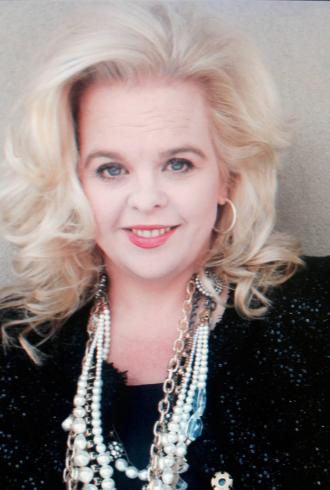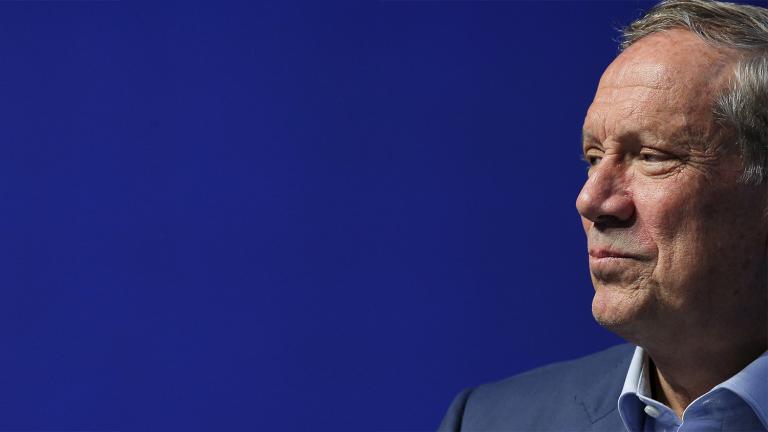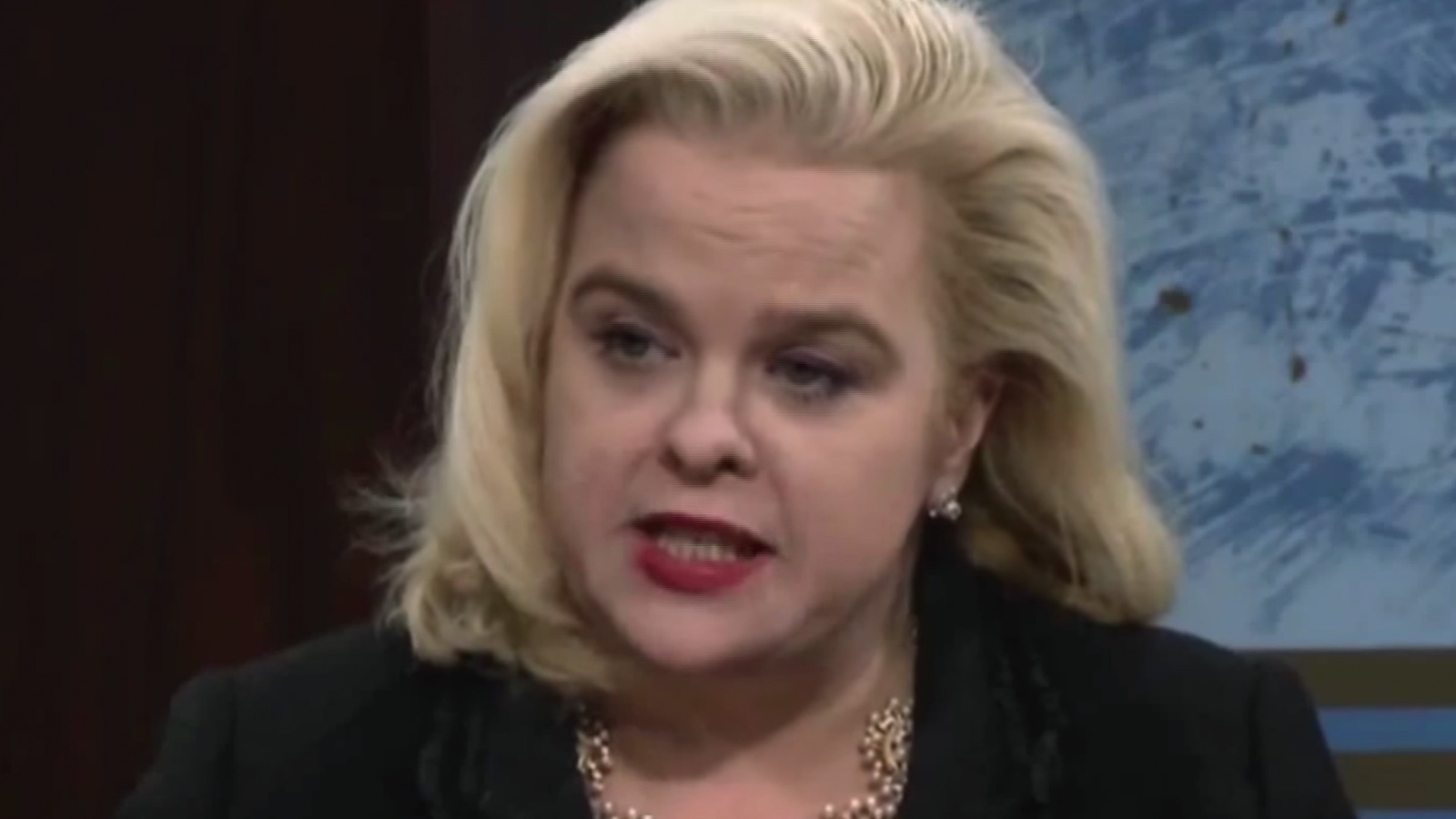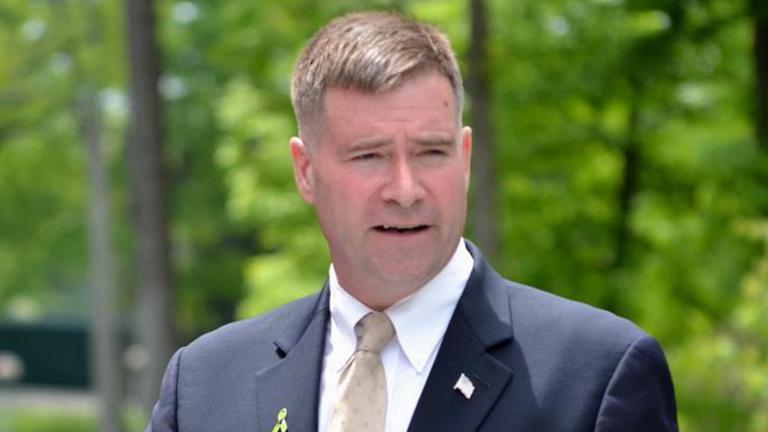Think Al Gore, but a lot more charismatic, and a lot more Republican, and female — with curling, platinum blond hair, plenty of bling, and a honey-sweet South Carolina drawl. That gives you a rough sketch of Michele Combs, founder and chair of Young Conservatives for Energy Reform, and possibly the most impassioned and unexpected messenger on clean energy and climate change the GOP has ever seen.
“I love Al Gore,” says Combs, “but he’s the wrong messenger for us. And he’ll admit that. He made this issue polarized. And that’s what we have to tackle every day.”
The daughter of Christian Coalition President Roberta Combs, Michele jumped into politics at age 21 when she became state chair of the South Carolina Young Republicans and a protégé of Lee Atwater, campaign manager for George H.W. Bush. She later built a special-events company that produced hundreds of events for members of Congress, the White House, and the Republican National Convention. Along the way, she befriended many high-level party members.

Michele Combs
That proved to be a big help in 2012 when she founded Young Conservatives, which is now building grassroots campaigns on energy reform and climate change in every state in the country, and working to convince environment-minded Republican senators to craft a comprehensive energy bill. She’s also working on the state level to help pass clean-energy legislation, like bills to set up net-metering systems that make it easy for homeowners with solar panels to sell their excess electricity into the grid.
We spoke with Combs recently to find out why she’s taking on this issue and what it will take to engage Republicans — young and old, moderate and right-wing — on climate change.
——
Q. What first got you fired up about energy reform?
A. It started when I was pregnant with my son — he’s now 14. You know how the doctors say, “Don’t eat fish.” So I asked my doctor why, and she said because of the mercury. Well, I said, “Mercury? Where is it coming from?” I began to research it on my own, and found that it came from coal-fired power plants. I was shocked. I thought, “This is something I need to get involved with.” But then I thought, ”Ahh! No, Michele, this is a liberal issue.” Then I thought, “A liberal issue? No! It’s a conservative issue, it’s a family issue — we need to protect our fetuses from mercury. It’s an American issue — we need to protect ourselves, our children, we need to protect everybody from mercury. Mercury’s a really bad thing.”
Q. How did that translate into political action on energy and climate?
A. I started on a mission to find out what was going on with our air, and why there is such a disconnect with the Republicans and the Democrats on this issue. So I got invited to this trans-partisan energy forum in Colorado in a real hippie town right outside of Boulder. There were a few conservatives there, but it was mostly liberals, about 30 of us, and we sat around this lake, and there was this gong, and they meditated, and I was thinking, “What the heck am I doing here?” One of people there was Al Gore. I was like, “Oh my Gosh, I am just in the throes of environmentalism!” But he was so kind to me, and while we’re very different, we became very close. I didn’t look at him as this liberal-monger Al Gore, I just looked at him as a person, and I learned a lot from him.
He introduced me to Larry Schweiger, who at that time was the president of the National Wildlife Federation. Larry said he’d been wanting to meet Republican senators and congressmen, and would I like to consult? I said, “Yes, of course,” because I really like him, and he’s a great Christian. I introduced him to my mother, and it ended up that the Christian Coalition started partnering with NWF. We were one of the ones that got [South Carolina Sen.] Lindsey Graham involved in the climate and energy issues, because Lindsey Graham and my mother are very, very close.
Q. How did you transition your focus from mercury to climate change?
A. The climate issue is not the defining issue for our organization at all, but, if we have clean air, it’s going take care of climate change. So if you don’t agree [with climate science], that’s fine, because we all agree on clean air. Clean energy is the next moonwalk, it’s the next frontier, and this country is the best country in the world. It’s so innovative and we can do anything, we can lead the world in this issue. I see it bringing jobs, and more importantly, clean air! I mean, who doesn’t want clean air?
Q. Tell me how your mom has influenced your work as an activist.
A. My mom is one of my biggest inspirations. She was a very successful businesswoman who became involved in politics and then she joined up with the Christian Coalition. The No. 1 thing the Bible talks about is to take care of the elderly, the widows, the environment, and so forth, so that tradition informs the Christian Coalition. My mom has taken a lot of heat for going after some of these issues, but she believes in her heart that this is what she needs to do. I took my thinking and my values from her example, with the idea that I would expand on it.
Q. So you see your environmental work as an extension of the Christian Coalition’s mission?
A. Yes, yes. Definitely. This is all about supporting the health and security of American families.
Q. Don’t Christians disagree about whether the Bible says God wants people to protect the Earth and its resources, or whether God has given us those natural resources to exploit and extract?
A. I don’t really deal with the Christian community. The Christian Coalition members are Christians, but they are Christians who are politically active. We focus less on faith and scripture and more on family advocacy. Our deal is all about education, about reframing the message. I love Al Gore, but he’s the wrong messenger for us. And he’ll admit that. He made this issue polarized. And that’s what we have to tackle every day. We have to educate conservatives — we’re the actual conservationists. That’s where the word conservative comes from — from conservation, from Teddy Roosevelt.
There are Christians spreading a message about “Creation Care,” but they seem to be more liberal and moderate Christians, maybe Episcopalian or Lutheran. We don’t really use the “creation” language, we focus on clean air, jobs, family issues.
Q. Let’s get specific about your policy goals.
A. Our ultimate policy goal is a comprehensive, bipartisan energy reform bill that would give us clean energy, improve energy efficiency, and also help small businesses. The House always goes faster than the Senate, so we are starting with the Senate, and working through Republican senators like Lindsey Graham and Rob Portman [Ohio] and Kelly Ayotte [N.H.] and Cory Gardner [Colo.]. We’re meeting with senators and building up the grassroots support in the states where the senators live. Right now, for instance, I’m in Ohio.
Q. What kind of grassroots work are you doing in Ohio and elsewhere?
A. We helped Portman last year on his efficiency bill, which passed. We’re doing events for young conservatives in Ohio and getting a lot of media attention. I’m writing op-eds for papers like the Cleveland Plain Dealer. Elsewhere, we’re working on net-metering legislation in Indiana, Florida, and Georgia, for example, and wind energy legislation in Iowa, Kansas, and Texas. We understand, overall, that we’ve got to have the grassroots before we can go anywhere with the [national] energy bill.
Q. You have voiced your opposition to oil industry subsidies — would that be in the bill?
A. Yes, I think the oil subsidies are ridiculous. I don’t know how companies that make billions of dollars still get subsidies. They’re just there, and no one has managed to change that. But I don’t want to get too specific about the bill we want just yet — it’s too early to do that, and we risk not getting our foot in the door. Some senator may come out to say, “I don’t like that,” and shut us out.
Q. What’s your position on a carbon tax?
A. I’ve seen it [proposed] and I think it looks good, but I don’t think it’s something we’re going to come out on right now.
Q. What’s your timeline for the bill?
A. After the [2016] election. I just don’t see that anyone’s going to touch this issue now, especially the Republicans. And I don’t see a big shakeup happening [in Congress] in 2016 — if anything, there might be more Republicans. In the meantime, we’re going to really build the grassroots so we can provide cover, so we can keep the senators safe, so that when they do vote on the bill, they don’t get a lot of feedback from the other side. So they don’t get voted out of office.
Q. When you speak to senators and to the grassroots, do you have to be careful to avoid the issue of climate change?
A. We’re not going to go to ultra-right older Republicans and start talking about climate change, because if we do, they’re gonna shut us down. But if we talk about energy independence, clean air, homeowner energy, and American innovation, we have a chance to get them. Now, with younger Republicans, we can say, “Clean air is gonna help climate change,” and they’re like, “Yes it is!” They grew up with recycling, they grew up with renewables, they didn’t live through the whole Al Gore era, they have no barriers. But with older Republicans, you have to be more careful.
Q. What’s the hardest moment you’ve had, the biggest barrier you’ve faced, since you began your political work on energy and climate?
A. Going to one senator’s office, when we first started. I’m not going to tell you who it was because we’re still working on him, but he’s from out west. He told us off for taking on this issue, and it was kind of like, “You guys shouldn’t be here,” and it got uncomfortable.
Q. That sounds like the attitude of many of the current Republican presidential candidates toward the issue of climate change. Does it upset you to see how poorly energy and climate are playing among the conservative candidates? How do you think progressives and environmentalists should react?
A. They are playing to the base, which is very conservative. I know we will see more of [the energy and climate issues] closer to the general election. I’m optimistic. It’s politics, and politics can change fast. We just have to educate, educate, educate.
As for environmentalists, they have learn to compromise, and to not overreact. The fact is, we’re all Americans, and everybody wants a better future for their children. Climate activists can’t come in and say, “It’s our way or the highway, and we’re gonna die tomorrow because of climate change.” That’s not the way to sell it. Of course we’re not going to die tomorrow. Maybe 20, 30 years from now, but not tomorrow. [Laughs.]
You know the biggest thing to keep in mind? That it can’t be all or nothing. This is not about right versus wrong, good versus evil. It’s about educating, compromise, and baby steps. That’s the best advice I can give to anyone who wants to make a difference on this issue. It’s not whether you’re dunked or you’re sprinkled. It’s not a religion.



